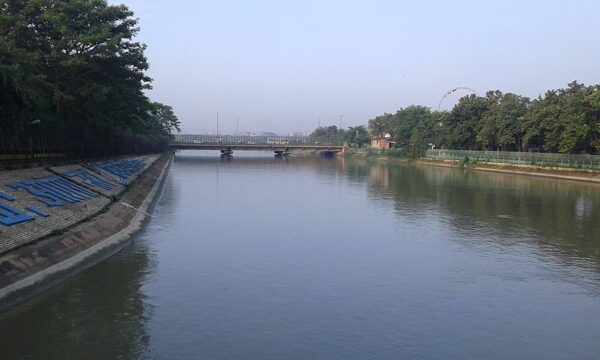Delhi’s worst nightmare: Unstoppable Yamuna River on the rampage
Unprecedented heavy rainfall in Delhi has resulted in the Yamuna River breaching the danger mark and causing significant disruption to rail and road traffic.
The river’s water level soared past the danger mark of 205.33 meters earlier than expected, on Monday evening, leading to emergency measures by city officials.
On Tuesday, the river also surpassed the evacuation mark of 206 meters. The rising water levels resulted in knee-deep flooding in some areas of the Yamuna Bazar, near Kashmere Gate. Consequently, local authorities initiated the relocation of people living in flood-prone areas to safer locations.
The Northern Railways temporarily suspended rail traffic over the old Yamuna bridge from 06:00 am on Tuesday, with road traffic also halted shortly after. The persistent heavy rainfall across north India has not only disrupted life but also led to the loss of over 37 lives in just three days.

Heavy rainfall in Delhi causes Yamuna River to breach danger mark. Photo courtesy of Sidheeq/Wikimedia Commons.
Adding to the city’s woes, the water level of the Yamuna River escalated beyond the danger mark to reach 206.24 meters on Tuesday morning. This surge followed the release of additional water from the Hathnikund barrage into the river by Haryana.
In a rapid response to the unexpected crisis, authorities have commenced the evacuation of residents from flood-prone areas. These individuals are being moved to relief camps and community centers scattered across the city.
The Delhi government is closely monitoring the situation, establishing 16 control rooms to oversee flood-prone areas and the Yamuna’s water level. Addressing the situation, Delhi Chief Minister Arvind Kejriwal announced measures to combat waterlogging issues.
Kejriwal noted that the city hasn’t witnessed such severe rainfall in four decades. He referred to the record-breaking rain levels, stating that the last similar occurrence was in 1982, when the city received 169 mm of rainfall within 24 hours. The current drainage system, he added, is unfortunately not equipped to handle such extreme rainfall events.
Discover more from Business-News-Today.com
Subscribe to get the latest posts sent to your email.

